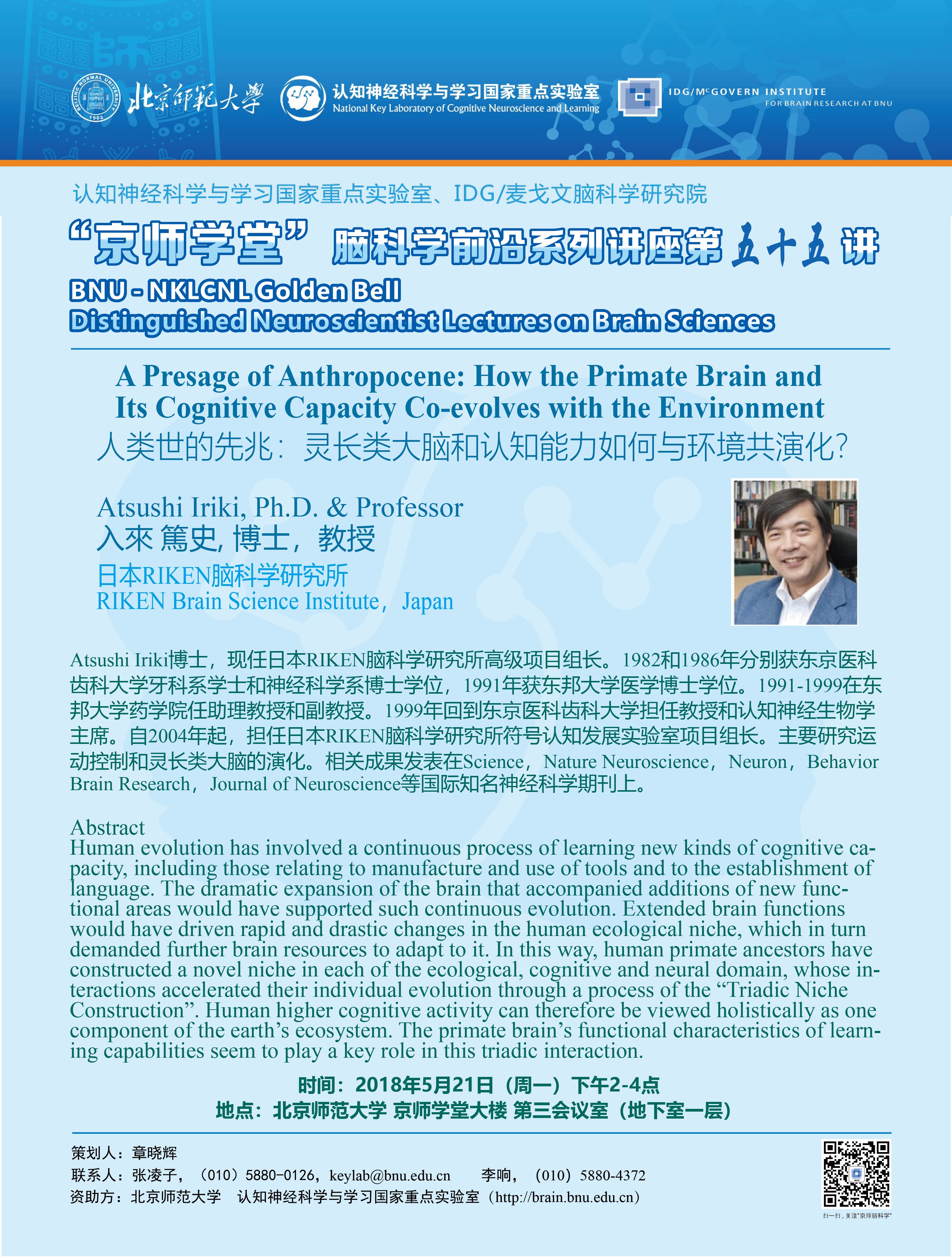人类世的先兆:灵长类大脑和认知能力如何与环境共演化?
A Presage of Anthropocene: How the Primate Brain and Its Cognitive Capacity Co-evolves with the Environment
Atsushi Iriki, Ph.D. & Professor
入來 篤史,博士,教授
日本RIKEN脑科学研究所
RIKEN Brain Science Institute,Japan
Atsushi Iriki博士,现任日本RIKEN脑科学研究所高级项目组长。1982和1986年分别获东京医科齿科大学牙科系学士和神经科学系博士学位,1991年获东邦大学医学博士学位。1991-1999在东邦大学药学院任助理教授和副教授。1999年回到东京医科齿科大学担任教授和认知神经生物学主席。自2004年起,担任日本RIKEN脑科学研究所符号认知发展实验室项目组长。主要研究运动控制和灵长类大脑的演化。相关成果发表在Science,Nature Neuroscience,Neuron,Behavior Brain Research,Journal of Neuroscience等国际知名神经科学期刊上。
摘要:Human evolution has involved a continuous process of learning new kinds of cognitive capacity, including those relating to manufacture and use of tools and to the establishment of language. The dramatic expansion of the brain that accompanied additions of new functional areas would have supported such continuous evolution. Extended brain functions would have driven rapid and drastic changes in the human ecological niche, which in turn demanded further brain resources to adapt to it. In this way, human primate ancestors have constructed a novel niche in each of the ecological, cognitive and neural domain, whose interactions accelerated their individual evolution through a process of the “Triadic Niche Construction”. Human higher cognitive activity can therefore be viewed holistically as one component of the earth’s ecosystem. The primate brain’s functional characteristics of learning capabilities seem to play a key role in this triadic interaction.
时间:2018年5月21日(周一)下午2-4点
地点:北京师范大学京师学堂大厦第三会议室(地下一层)
